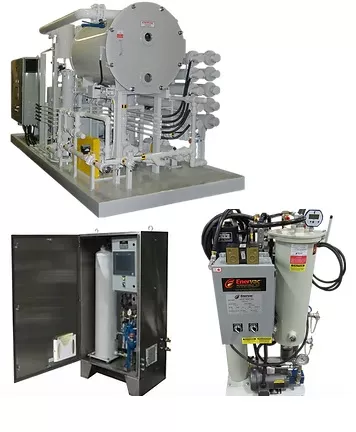Professional Tips for Making The Most Of the Advantages of Transformer Oil Regeneration
Professional Tips for Making The Most Of the Advantages of Transformer Oil Regeneration
Blog Article
Why Regenerated Transformer Oil Is Crucial for Reliable Power Solutions
The vital duty of regenerated transformer oil in ensuring the dependability of power systems can not be overemphasized. By recovering the oil's fundamental chemical and physical properties, the regrowth procedure considerably enhances its dielectric stamina and thermal performance.
Relevance of Transformer Oil
Transformer oil plays a critical duty in the efficient procedure of electrical transformers. By giving thermal conductivity, transformer oil dissipates warmth produced throughout electric procedure, which is necessary for keeping ideal operating temperatures and extending the life expectancy of the equipment.
Furthermore, transformer oil works as an obstacle against moisture and air, which can cause oxidation and deterioration of transformer products. The presence of pollutants in the oil can significantly hinder its insulating residential properties, causing functional ineffectiveness and prospective tools failure. Routine tracking and maintenance of transformer oil are therefore vital to ensuring the continued effectiveness of transformers.
The quality and structure of transformer oil are paramount, as they straight impact the reliability and performance of the electrical systems in which they operate. Recognizing the relevance of transformer oil is vital for industries and utilities reliant on robust power infrastructure, stressing the need for effective monitoring and regeneration processes to preserve oil integrity in time.
Advantages of Regrowth Refine

In addition, the regeneration procedure mitigates the destruction of oil, which can lead to boosted oxidation and acid development. This not only improves the dependability of the oil yet also reduces the risk of transformer failings as a result of insulation break down. The improved top quality of regrowed oil permits transformers to operate at optimal levels, ultimately bring about improved energy efficiency and decreased functional costs.
Furthermore, the regrowth procedure adds to maintaining the general health and wellness of the power system. Transformers can run much longer without the demand for oil substitute, thus minimizing downtime and upkeep efforts. In summary, the regeneration process provides considerable advantages by boosting the long life and efficiency of transformer oil, ensuring that power systems run reliably and efficiently in time.
Environmental Effect and Sustainability
The regeneration procedure of transformer oil dramatically reduces environmental problems connected with oil disposal and waste management. Traditional disposal approaches for utilized transformer oil posture significant dangers, including soil contamination and water air pollution. By regenerating oil, these risks are considerably reduced, as the process recycles existing resources rather than adding to lose build-up.
In addition, regenerated transformer oil can be recycled in different applications, which promotes a round economic situation. This not just lessens the requirement for virgin oil extraction-- a procedure that can be environmentally destructive-- yet likewise conserves natural deposits. The regeneration process itself uses sophisticated filtering and purification strategies that eliminate hazardous pollutants, making certain that the last product satisfies or exceeds market criteria for performance and safety and security.

Enhancing Transformer Efficiency
Considerable renovations in transformer performance can be accomplished via making use of regenerated transformer oil. This oil, created via sophisticated filtration processes, considerably improves the electric insulation buildings of transformers. By removing contaminations and contaminants that commonly compromise performance, regrowed oil makes certain premium dielectric strength, reducing the danger of electric failings.
Furthermore, regenerated transformer oil displays improved thermal conductivity, which assists in reliable warmth dissipation. This characteristic is crucial for maintaining ideal operating temperature levels, thereby lengthening the lifespan of transformers and minimizing the possibility of getting too hot - click for source Transformer Oil Regeneration. Enhanced thermal administration additionally adds to the general reliability of power systems
In addition, the chemical stability of regrowed oil avoids the formation of corrosive acids and sludge, which can adversely affect transformer components. By maintaining a cleaner internal setting, this oil reduces maintenance requirements and prolongs solution intervals.
Cost-Effectiveness and Efficiency
In terms of cost-effectiveness and efficiency, regenerated transformer oil offers an engaging alternative to traditional oils. The regeneration procedure not just removes impurities but additionally brings back the oil's original buildings, expanding its practical lifespan. This long life equates right into lowered regularity of oil replacement, therefore reducing functional expenses over time.
In addition, the usage of regenerated oil can considerably decrease power losses linked with Going Here inefficient insulating liquids. Its remarkable dielectric properties make certain ideal efficiency, improving the reliability of power systems. As an outcome, businesses profit from lower maintenance expenses and decreased downtime, cultivating a more efficient functional environment.

Final Thought
To conclude, the regrowth of transformer oil plays an essential role in ensuring the dependability and efficiency of power systems. By restoring the essential chemical and physical properties of the oil, this process improves dielectric strength and thermal conductivity, inevitably decreasing the danger of insulation failure. Additionally, the ecological benefits connected with reusing sources add to sustainability efforts, while cost-effectiveness and enhanced efficiency emphasize the need of making use of regenerated transformer oil in modern electrical facilities.
Transformer oil plays a crucial function in the effective operation of electrical transformers. Regular surveillance and maintenance of transformer oil are therefore crucial to making sure the proceeded performance of transformers.
The regeneration procedure of transformer oil significantly reduces environmental issues connected with oil disposal and waste monitoring. By extending the lifecycle of transformer oil, the energy and sources generally consumed in creating new oil are substantially lowered.Substantial renovations in transformer efficiency can be achieved with the click for source use of regenerated transformer oil.
Report this page